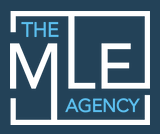Custom Audiences and Partner Category targeting have been some of the most prevalent features in Facebook’s Ad Targeting services.
These targeting features will be undergoing a big overhaul thanks to the recent security concerns over users’ data. The changes will have a widespread effect, with some parts being completely phased out and others being modified.
Here are all the changes you need to know about.
Partner Categories are Going Away
The Partner Categories feature allowed ad creators to leverage super-nuanced data collected from third-party providers like Oracle and Experian. Just about half of Facebook’s 1,200 targeting criteria come from third-party data sources, and these will soon be removed.
These categories allowed advertisers to really hone-in on specific audiences and target ads with pinpoint accuracy. But because of the recent security breaches the collection and use of third-party data on Facebook is changing drastically.
As of October 1st, the Partner Categories feature will be completely phased out.
Most advertisers didn’t rely heavily on Partner Categories. But there are always exceptions. Make sure to check the targeting of your current Facebook Ads to ensure you’re not getting any alerts about targeting that will soon be removed.
If you did rely on some Partner Categories you’ll need to shift your strategy to rely on first-party data, that is to say, data that you’ve collected yourself about your own customer base and data you’ve collected directly through Facebook , which is honestly more likely to be effective in helping you gain the attention of potential customers.
New Requirements to Upload Custom Audiences
As of July, Facebook has added the requirement to anyone creating a Custom Audience that they must specify how they obtained the data they’re using.
They’ve also confirmed that there will be a new Custom Audiences Certification Tool (yet to be rolled out) that will require ad creators to certify that they have permission to use the data and that the users it is targeting consent to their data having been collected and used for ad purposes.
This may seem like an extra hoop to jump through, but as Facebook puts it “When ad targeting is done well, it provides value to both people and businesses,” and using customer data without asking their permission doesn’t create an atmosphere or trust.
Why is Facebook Making These Changes?
In the wake of the Cambridge Analytica scandal, Facebook’s ability to keep their users’ data private has come under close scrutiny, spurring on multiple changes to the platform. And while using third-party data to target ads at its users isn’t one of the practices that originally got Facebook in so much trouble, it can easily be seen as invasion of a user’s privacy. They’ve decided to get ahead of the game by removing this feature before it becomes another PR nightmare.
What It Means Long-Term
Without the use of third-party data, relying solely on the data that users have consented to sharing with you means that advertisers will have to be more creative in generating their targeted ads through Facebook. But in the long run, creating an advertising environment where everyone is on board with what’s being shared can mean greater trust between customers and businesses.
Try not to see this change as a loss. Instead, look at it as a challenge and an opportunity for you to experiment more. Rely less on what you’ve always done and try something different. You may be surprised by the results!
Creating better ad experiences also means that users are more likely to stay and engage with the content they see on Facebook, which makes the platform a more valuable place to advertise overall.
Need Some Advice?
If you need help updating your Facebook Advertising in light of these new targeting changes, or if you would like to try Facebook Advertising for the first time, let us know! Schedule a quick (and free!) phone call so we can help answer your questions.

